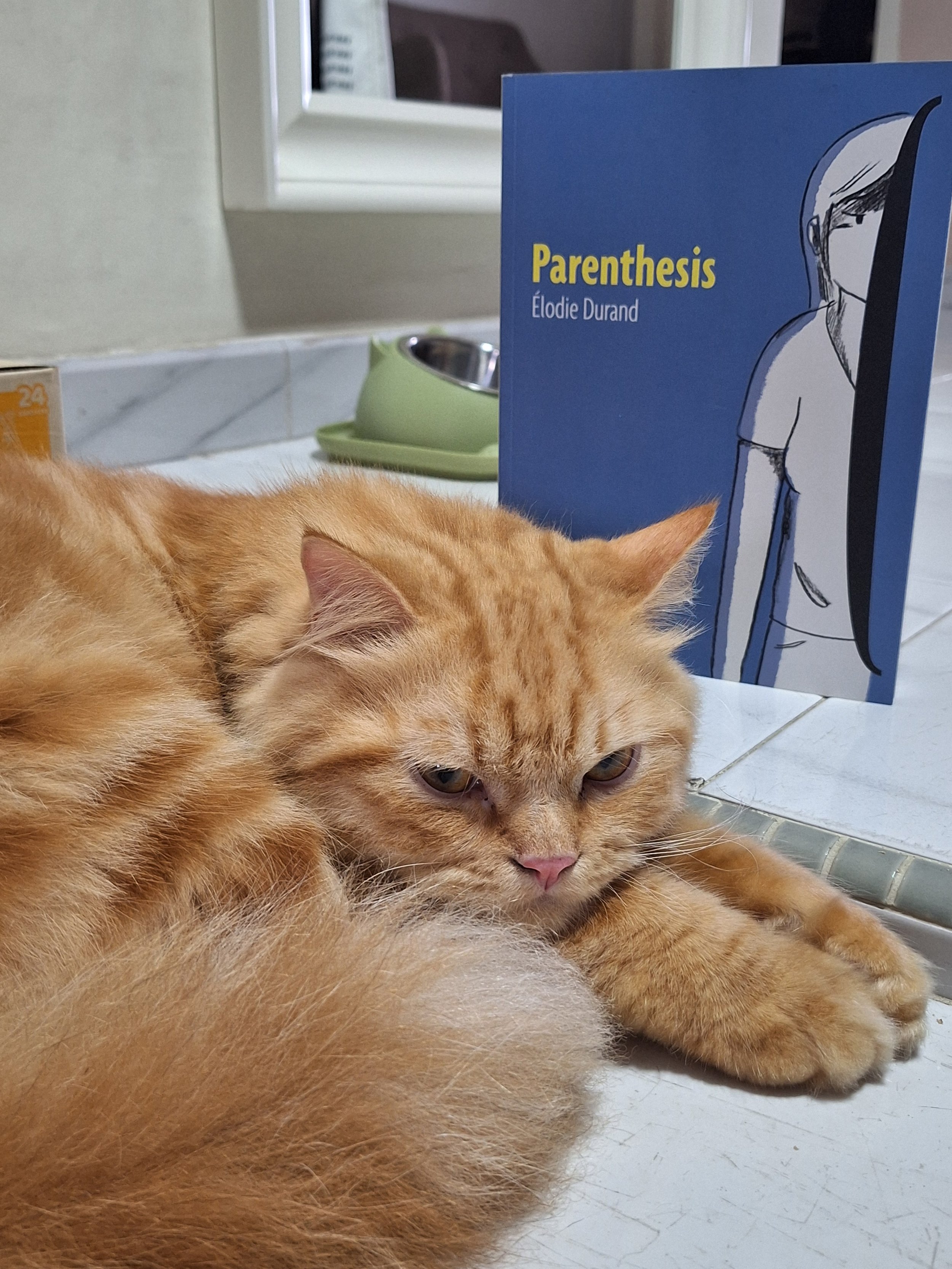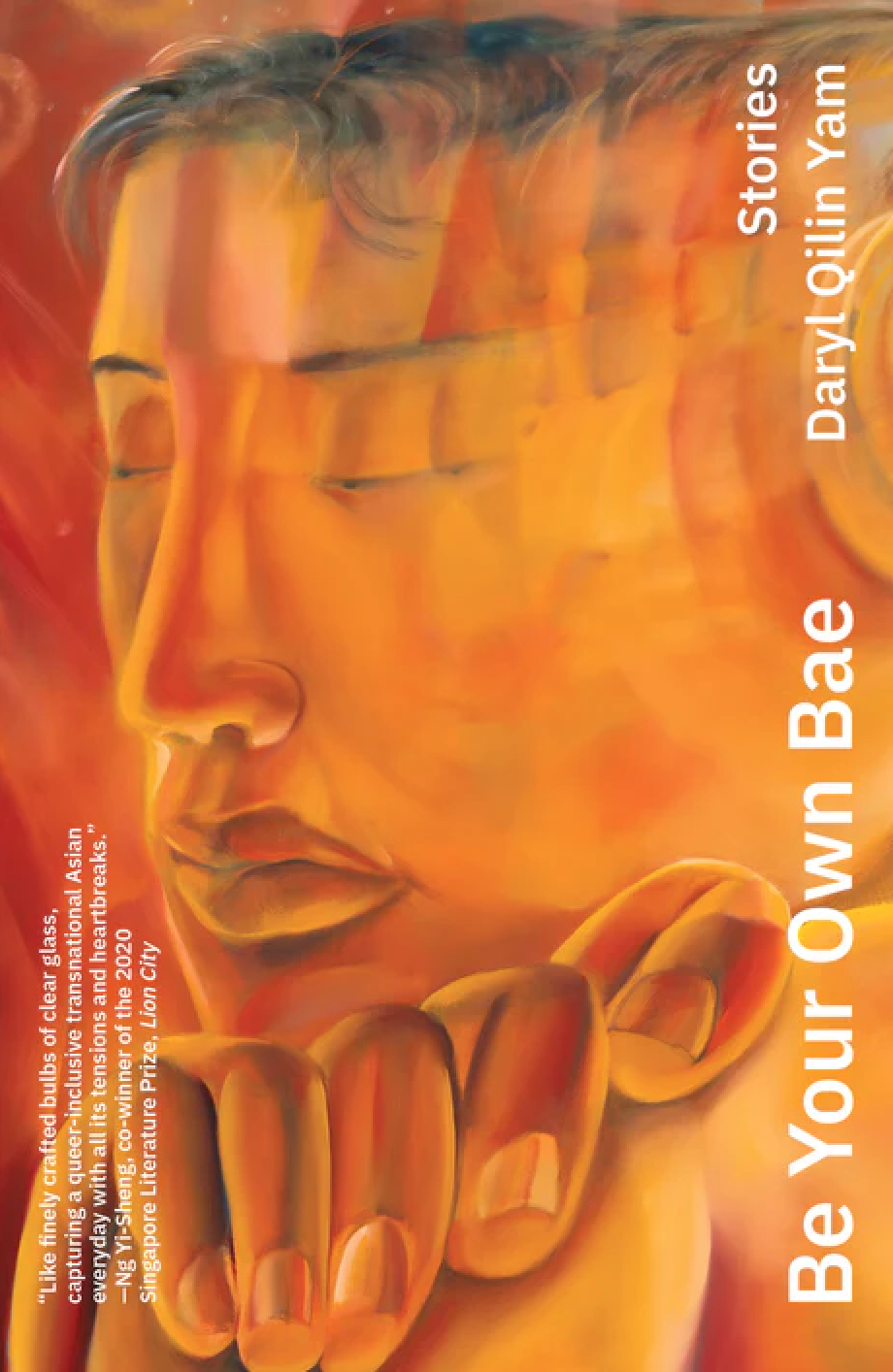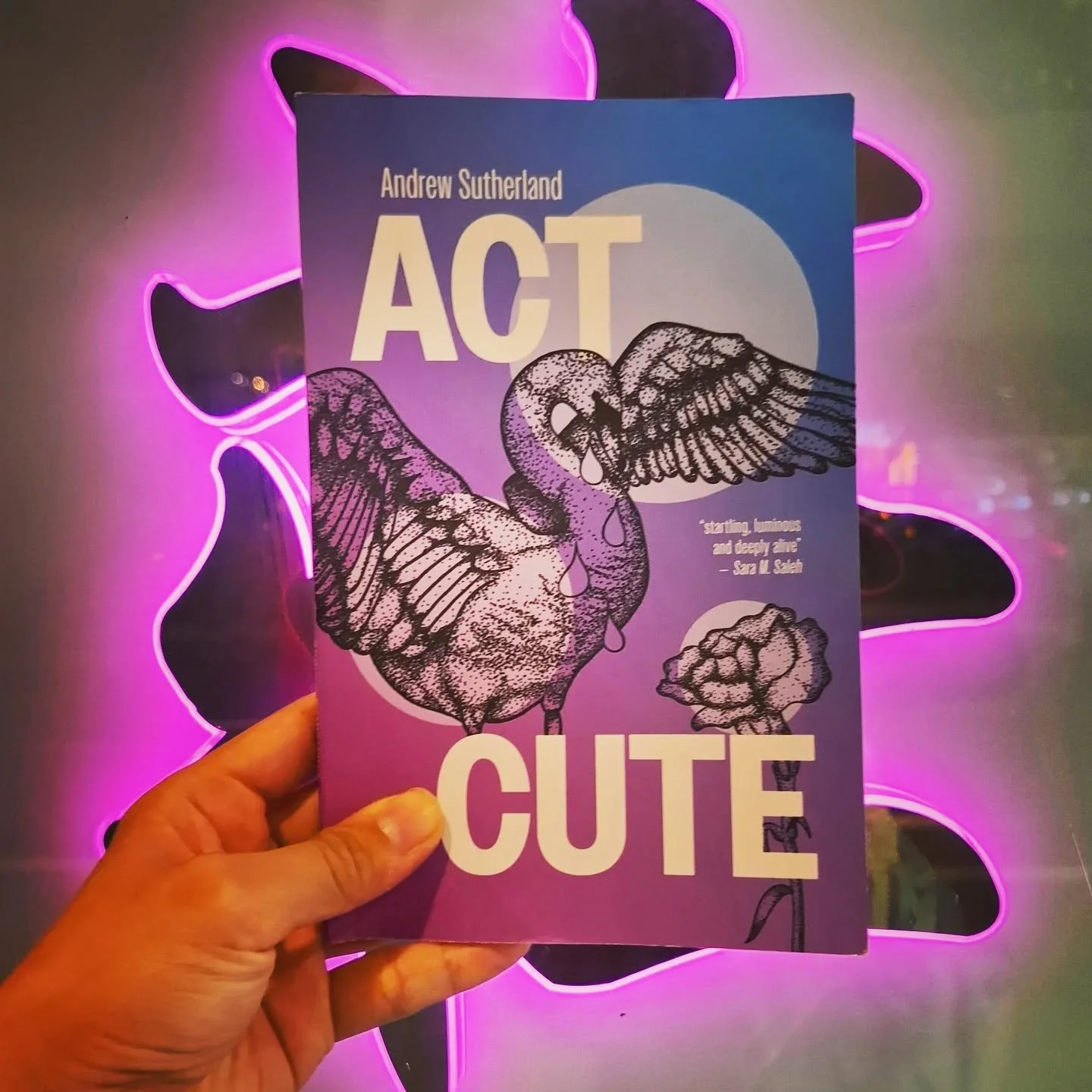Firegrief
Review of Odes to Lithium by Shira Erlichman (USA: Alice James Books, 2019)
By Lim Xin Hwee
Lithium, a drug commonly used to treat bipolar disorder, is the focus of Shira Erlichman’s debut poetry collection. First used in psychiatry in the mid-19th century, lithium was reintroduced in modern practice in 1949 by John Cade and approved by the U.S. Food and Drug Administration only in 1970. As with many medications, lithium has its own set of side effects, including poor memory and weight gain. By making lithium the central subject of her collection, Erlichman eschews the advice of gatekeepers who deem it inappropriate to dedicate so many poems to bipolar disorder. This choice yields a book that fully and vividly displays the difficulties of living with a heavily stigmatised illness.
Chao Harn Kae, Woman with Snake #1 (2014), Porcelain, 36x13x9 cm
Image description: An off-white nude porcelain sculpture of a woman whose body is covered in scales. Her arms appear snakelike, and her left hand looks like a snake with its mouth open, ready to pounce. Dark-blue, serpentine brushstrokes wrap around her body.
Erlichman frames the collection by first describing the scepticism of a medical expert. In the opening poem, ‘Snakes In Your Arms’, the speaker walks herself through a memory of a visit to the neurologist, ‘the fifth time in two months’, to investigate tingling sensations in her arms. This feeling generates alarm, more so when the doctor tells the speaker that physical investigations indicate she is ‘normal’. The speaker finds herself unable to behave ‘normally’. As if to corroborate her abnormality, several aberrations feature in the poem; for example, there is an intrusive parenthetical thought about the speaker having an impulse to kiss the doctor. The tempo of the poem also picks up at one point to reflect a sense of being overwhelmed: ‘You only have twenty minutes [...] before you have to go back to Kit’s house [...] before finding a new place to live before deciding how to live tonight, let alone the rest of your life.’
When the speaker explains she has bipolar disorder, the doctor does not know how to react and chooses to question the speaker’s reality: ‘Do you really think that there are snakes in your arms?’ The poem shows a disconnect between the institution of medicine and the speaker’s lived experiences. The prescription of lithium as a cure suggests that a mentally ill patient would have to entrust their treatment, and thus their recovery, to a professional who understands them poorly, if at all. As the collection’s opening poem, ‘Snakes in Your Arms’ perfectly displays the speaker’s feelings of ambivalence, scepticism, and apprehension towards lithium. These feelings are further strengthened through the speaker’s interactions with people who fail to understand her.
Yet, at the same time, the collection aims to create this understanding. Despite the difficulty of coming to terms with her disorder, Erlichman imbues her speaker with remarkable confidence and assuredness, thereby humanizing her. In these depictions, her speaker has control over the world and, by extension, over her experience of it. In ‘Side Effects II’, Erlichman writes, “roll the frozen globe of a grape / from roof to cheek / Little God that I / am”. The speaker is grounded in physical sensation, which runs contrary to the dissociative episodes that someone with bipolar disorder may experience. Although the speaker remains a foreigner to her own experiences throughout the collection, she is always aware of this alienation and finds ways to wield control over her world. If she cannot, she settles for the next best, which is to see the world in her own light. Describing that world as a grape or a pea makes it, and the critics who inhabit it, less threatening.
Erlichman effectively conveys the experience of having bipolar disorder, difficult as it may be for the reader to understand. One example is her depiction of lithium’s notorious side effect of memory loss. In ‘Beatrice’, the speaker conjures up the image of her late grandmother clapping and encouraging her. As the speaker finds it difficult to come to terms with her situation on her own, she externalizes the motivation to live in the form of other people. In the second section of the book, Erlichman addresses the people who were particularly influential in the speaker’s identity formation. ‘Margot’ is a tender poem for a lover, and ‘The Two Things I Remember From Freshman Physics Class’ reprises Ms. Kissel’s story of her cockroaches who refused to die and aptly compares the pests to lithium. Yet, even in this relatively nostalgic section, the theme of lithium is never far away. The memories, though pleasant in themselves, are benchmarks for her present life. This section thus serves as a transition, after which lithium takes centre stage in the collection; almost all the poems thereafter refer to it in the second person.
Chao Harn Kae, Woman with Snake #2 (2014), Porcelain, 39x17x12 cm
Image description: An off-white nude porcelain sculpture of a woman whose body is covered in scales. Her arms appear snakelike. Dark-blue, serpentine brushstrokes wrap around her body.
Erlichman’s linguistic dexterity shines through especially in the book’s latter half. In ‘Mind Over Matter’, she coins the term ‘firegrief’ for her mental state (“As if I could possess the firegrief that / possessed me”). The word reminds me of an Old English kenning, where two common nouns are put together to stand for another noun. For example, ‘whale-path’ could replace ‘sea’. The word ‘firegrief’ suggests a unique experience for which there may be no other term. The speaker then describes the scene of her own murder:
[…] They aimed to clean up a murder scene
from behind a plate of glass. It was my murder.
Mine.
Her experience of firegrief exposes her obsession with being responsible for what is wrong: the witnesses to the murder appear to blame her for her fate. Yet they did nothing to alleviate her firegrief as it was happening. The firegrief—a pain that is self-destructive, self-sustained, and overt—could have been put out, but because they did not put it out, her witnesses are as guilty as she is in her self-destruction.
My favourite poem from the collection also comes from this latter half. ‘Rose’ is a short poem about what bipolar disorder looks like. Erlichman writes,
a friend says
but
you
don’t
seem
like
you
have
Bipolar
[...]
a rose
by any other name
is still a flock
of blades
Here, Erlichman recalls the declaration in Shakespeare’s Romeo and Juliet that beings and emotions exist apart from their names. Applied to the comment by the speaker’s ‘friend’, not ‘seeming like’ she has bipolar does not change the reality of her condition. Not behaving as society expects a person with bipolar to behave, Erlichman implies, should not invalidate their experiences. Yet this is exactly what happens to the speaker in ‘Rose’. The alienating discourse she faces in every step reflects a culture deeply intolerant of those living with mental illnesses. To appear not to need medication or to appear not to have bipolar disorder points to the superficial understandings of mental illness on which popular discourse too often draws. With everyday language and conversation so laden with assumptions and expectations, it is no wonder Erlichman resorts to metaphorizing the speaker’s experience and to using other art forms throughout Odes to Lithium.
Image description: Black-and-white illustration of a person sitting on a stool taking off their shirt. The person’s face is not visible.
Spliced with various poems are sketches done by Erlichman herself, which often feature people without faces. They could suggest that we don’t know who among us may be living with bipolar disorder, since it is possible for someone with bipolar to lead a mostly ‘typical’ life. Yet it is society that imposes this false notion of typicality onto those living with the mental illness, so that the patient has to choose either to internalise or to reject it. Through her drawings, Erlichman resists the imposition of such assumptions, thereby bringing to light the very real difficulties faced by those who have bipolar disorder.
Towards the end of the collection, the poems themselves take on a more experimental slant. In ‘On This End’, we see the disintegration of letters written between the speaker and her mother. The letters are presented backwards.
Image description: Text of ‘On This End’, which is divided into two pages, each with a scattering of words and short phrases.
When read in the right order, the letter above discusses the speaker’s promise to call her mother, which she will likely not follow through. Erlichman’s presentation of the letters undermines their meaning. Read in the usual order as a sequence of fragments, the information in the letters is gibberish, and meaning is subverted. By their fractured presentation, the poems allude to the meaninglessness of words not backed by actions. Similarly, in ‘Barometer’, Erlichman uses strikethroughs to demonstrate the insidious presence of mania in the speaker’s life. The poem charts out alternate timelines, different lives: ‘I die flip the pancake’, ‘Give up directions’. These experimental poems undermine any concept of “normalcy” while effectively conveying difficult-to-understand experiences to the reader.
‘The Monk’, the collection’s final poem, exemplifies yet again Erlichman’s ability to reinvent a metaphor. Using self-immolation as a conceit, the speaker appears initially to liken themselves to the monk, and lithium to the fire. Yet Erlichman ends the poem by writing:
What a blessing, my monk,
to be your fire.
Instead of centring herself as a parallel to the monk, she compares herself to the fire. She imagines herself as the conduit between her treatment and the rest of the world, such that her experience encourages others to rethink their own circumstances and beliefs. Not only has the speaker come to terms with lithium, but she sees optimism in the temporary nature of self-immolation and the monk’s certain death. Lithium will be a significant presence in her life, and it will come with pain and complications, but it will also allow her to face the world with ever-increasing strength. To use Erlichman’s own metaphor, she is on fire, but she will warn and warm others by her flames.
According to literary scholar Cathy Caruth's Unclaimed Experience: Trauma, Narrative and History, trauma ‘is always a story that cries out, that addresses us in the attempt to tell us of a reality or truth that is not otherwise available’. In its soberly experimental way, Odes to Lithium offers its own reality or truth about bipolar disorder. This truth is not always accessible, but, as Erlichman shows through her courage and candour, it is only by struggling through the challenges of understanding that we can begin to widen our own worldviews. After all, sometimes there is no other way to tell the difficult truth.
Chao Harn Kae, Who Am I (2014), Porcelain, 7x5x10 cm
Image description: A porcelain sculpture of a faceless figure crouching over a dark-blue pool. The figure is in a hood with wavy, horizontal stripes. In the pool a face is staring back at the faceless figure.
LIM Xin Hwee has a keen interest in language and how people use it. A member of the writing collective /s@ber, she has written many things, important and unimportant. She graduated from NTU with a degree in English and Linguistics. She also writes Lunch Break, a monthly poetry column on Singapore Unbound’s SP Blog.
If you’ve enjoyed reading this article, please consider making a donation. Your donation goes towards paying our contributors and a modest stipend to our editors. Singapore Unbound is powered by volunteers, and we depend on individual supporters. To maintain our independence, we do not seek or accept direct funding from any government.















In Taiwan Travelogue, ‘twinned souls… are at once lost, but also found, in translation.’ A review by Eunice Lim.